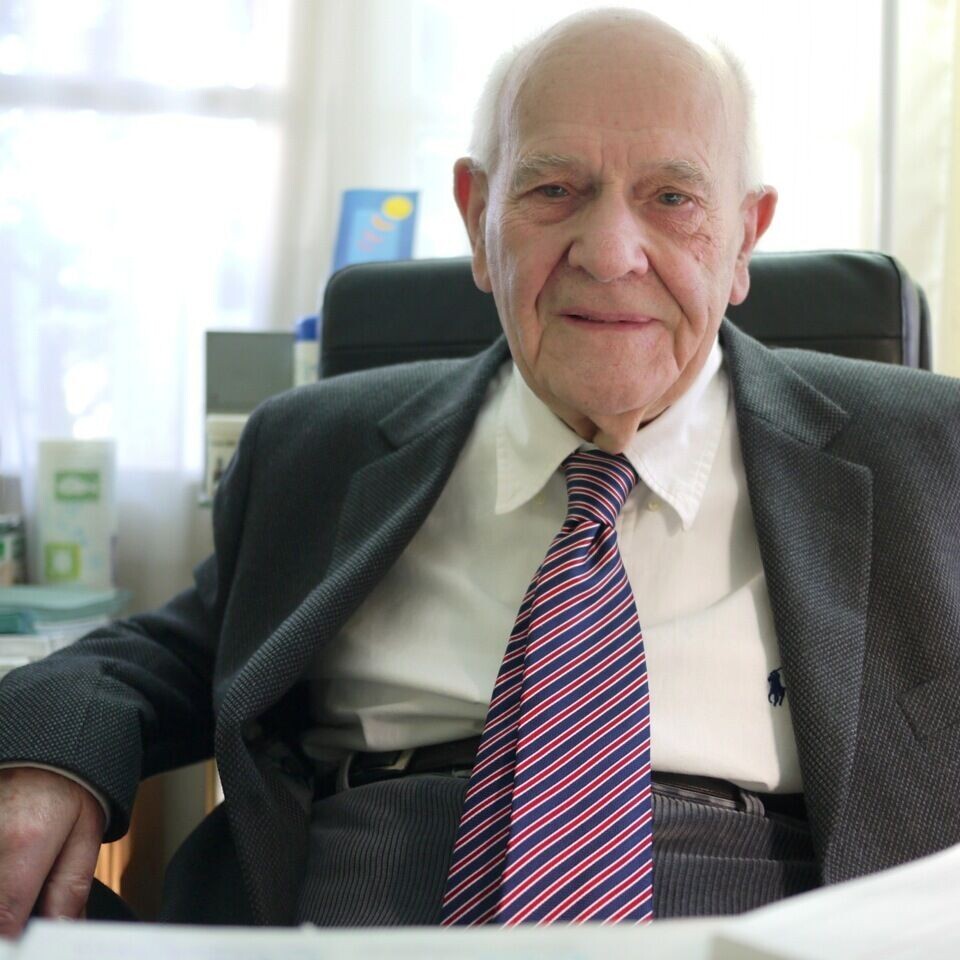-
Roadside noise cameras await approval to start issuing fines for loud vehicles in France
The devices known as meduses already exist in several cities but so far have only been ‘instructional’
-
White storks make strong return in France via nest ‘platforms’ and clipped wings
The Ligue pour la Protection des Oiseaux shares the conservation challenges in saving these birds from extinction
-
Hosting scheme in south-west France lets newcomers sample lifestyle
Households in nine Dordogne communes volunteer under Mes Nouveaux Voisins scheme
Meet France’s oldest working doctor, 101, recognised for his longevity
Dr Christian Chenay began his career in 1946. He closed his surgery earlier this year but continues seeing some of his oldest patients

France’s oldest working doctor has been honoured for his longevity after 77 years on the job.
Christian Chenay, 101, was given a medal by the local branch of the doctors’ professional body l'Ordre des médecins.
Dr Chenay continued to see patients at his surgery in Chevilly-Larue near Paris until the beginning of this year (2023).
He has even continued to see some of his oldest patients, if they are unable to travel elsewhere, as the commune now has only one other GP.
Three years ago, he was received by France’s president, Emmanuel Macron, to recognise his efforts during the Covid pandemic.
Mr Macron congratulated his “truly inspiring example”.
Upon receiving his recent honour, Dr Chenay explained why he did not take retirement, despite having been eligible at age 65.
He said: “It’s easier to continue doing something you know. And now it’s much easier to keep up to date with things.”
By the time Dr Chenay senior closed his practice (located in his own home) last month, it had been running for almost eight decades, since 1946. His son – with whom he worked for 37 years - took retirement at age 65, but his father continued.
In an interview with Connexion when he was 97, Dr Chenay said: “I’m doing great. I’ve no memory trouble so it does not bother me. I am not the type to watch TV all day. I take the first 30 people and finish around 15:00-17:00.”
He also recognised that “working in a medical desert…everyone is overwhelmed” and joked: “Who would be crazy enough to take my job?”.
Medical deserts in France
The closure of this long-standing surgery means that there is now only one GP in the commune. It comes amid a context of increased numbers of medical deserts in France.
An ‘official’ medical desert is defined as an area in which patients have access to fewer than 2.5 consultations with a local GP per year on average.
This may be because they cannot get an appointment, there are not enough doctors, or they live too far away from their nearest GP surgery.
The Ile-de-France region technically has the most doctors of any region, but despite this, the region’s high population means it is the worst affected in the country. Some 62.4% of people in the region have difficulties accessing care.
Living in a medical desert can lead to a decline in the health of the population and result in poor health or even dangerous conditions, due to people not being able to see a health professional quickly enough, or at all.
It can also mean that hospitals become oversaturated as more people go directly to an A&E department instead of their GP, or end up having to go to a hospital for a condition that could have been prevented if they had seen a GP earlier.
People with chronic conditions may not receive adequate monitoring and their issues may worsen.
Related articles
Eight facts to understand France’s issue of ‘medical deserts’
Seven questions about ‘medical deserts’ in France
How can I find out which parts of France are lacking doctors?
























